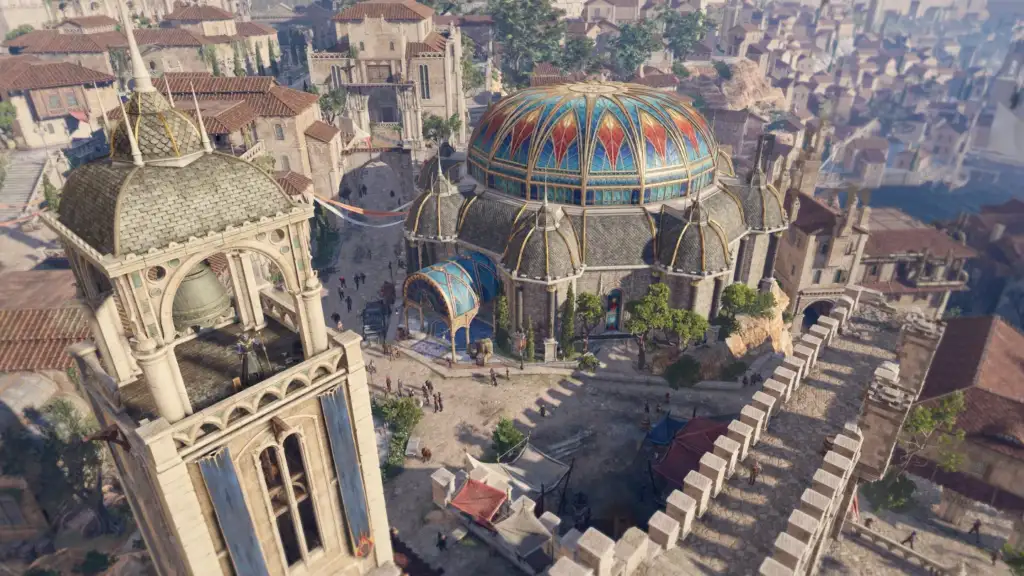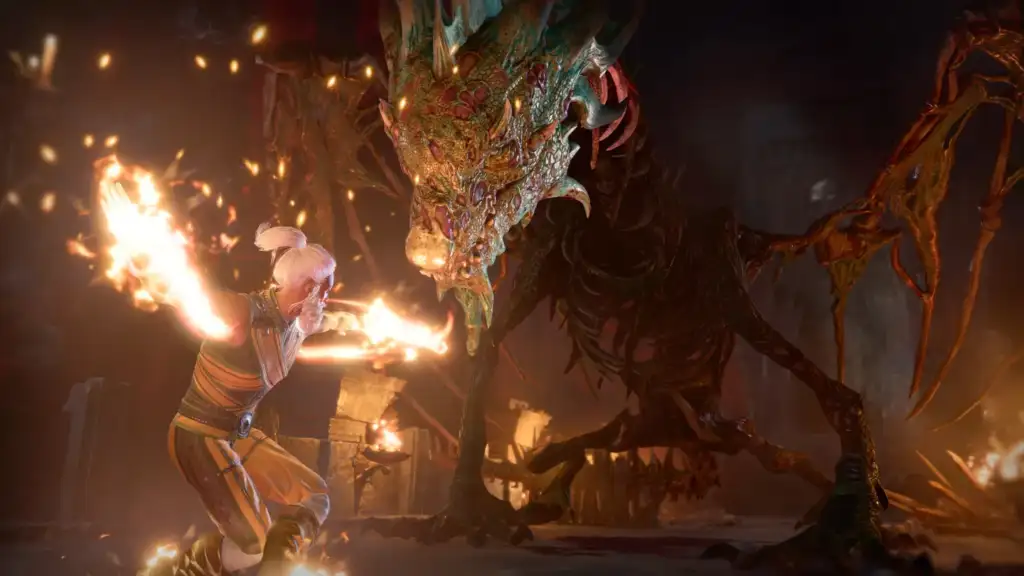
To use a phrase from Carl Sagan, you have to consider the unusual business empire that is Dungeons & Dragons before determining whether Baldur’s Gate 3 is a good video game.
On the one hand, it’s simple to assess Baldur’s Gate 3’s enormous success: it’s a masterpiece. It’s nearly impossible to comprehend the complexity of the characters, the intricacies of the story, and the astounding quantity of gameplay options in this game. It’s amazing how much of this enormously expansive game seems customised and intimate. However, the more time I spend playing it, the more I find that the game and I are at odds.
It’s difficult to place all of my problems squarely at the foot of Larian Studios, the game’s developer, or even Baldur’s Gate 3. It’s D&D for the record. I fear that Baldur’s Gate 3, which takes inspiration for all of its mechanical mechanics from a board game, is a boring, unenjoyable way to play a video game. Nor do I think there’s a way to get past these mechanical nitpicks. Every aspect of Baldur’s Gate 3, including its lore, is connected to D&D, and part of what has made Larian’s version of the game so successful is the tabletop role-playing game’s recent surge in popularity.
The locale, Baldur’s Gate, lies in the Forgotten Realms, a basic yet dense and bizarre fantasy setting featuring knights, dwarves, elves, magic, and other such elements found in role-playing games. A few video games have been made set in the Forgotten Realms, including Icewind Dale and Neverwinter Nights.
Dungeons & Dragons: Honour of this year The setting of the film Among Thieves is the same, and Baldur’s Gate, the location, is also mentioned. Currently, Baldur’s Gate 3 is a part of a large business empire that covers the whole tabletop game market. A true play podcast didn’t exist when the original Baldur’s Gate was launched in 1998; in fact, podcasts didn’t exist at all. These days, a Dungeons & Dragons film playthrough might become so famous that it gets turned into an animated TV series, as happened with the hugely successful Critical Role. With its current level of popularity, D&D has transcended its niche within nerd culture. Taking everything into account, it feels

My dread grows more with each game I play of Baldur’s Gate—that the answer is no. Though Baldur’s Gate 3 is very much a D&D role-playing game, its numerous delights serve as a constant reminder of the limitations of its tabletop source material.
Baldur’s Gate 3 combat can be tiresome at times, necessitating several saves and reloads because of unforeseen problems. Unexpected occurrences, such as a goblin pushing Astarion into a chasm, can impede development even with meticulous planning. Like D&D, the game uses dice rolls, but the dungeon master is not forgiving. Gamers have to accept the results or load previous saves.
Baldur’s Gate 3’s story mode is easier and more fun to play than the challenging combat. Engaging with other party members enhances role-playing and fosters creativity, which is fundamental to D&D. The experience is enhanced by the thoughts and emotions of the characters, particularly Astarion, who resembles a Hedonism Bot from Futurama. This is made possible by the superb voice acting and character development.

However, the manner in which this game populates the remainder of its universe with D&D systems exposes its limitations, or at the very least, the limitations of utilising it as the foundation for your video game. From my perspective, the enjoyment derived from D&D lies primarily in the game’s lore rather than the narrative or strictly adhering to the rules. Telling stories with others around a table is enjoyable when you use your imagination, perhaps to the exasperation of your dungeon master.
The narrative shared by your companion demonstrates the adaptability of a human dungeon master—for example, transforming a cyberdragon into an ally. Baldur’s Gate 3, on the other hand, has a computer-generated Dungeon Master that provides a set, constrained story and lacks the creative and compassionate elements of a human DM.
It also is a video game, and a kind of game where showing off the complexity of the combat system is the point. The issue here is that while the combat system is complex, it’s also unforgiving. If you’re not always using every single spell, item, and bonus action you have to defeat the enemy characters, you’re probably going to lose. The high stakes of combat can sometimes make it incredibly thrilling — luring enemies onto your grease puddle and then hitting them with a fire arrow, exploding everyone, will never not be satisfying. But too often you end up quick-saving and reloading because your well-made plans are thwarted by bad dice rolls.

This is one of the reasons I’ve developed the bad habit of using charismatic characters in tabletop games. It’s satisfying to create a character who can talk their way out of any difficult situation in two distinct ways. Combat encounters are by far my least favourite thing to do in the game, but it gets me out of them. It also gives me the impression that I am a complete partner in the story the DM is creating; by leveraging my large brain and the DM’s agency, we may alter the plot itself.
Like Dwarf Fortress and Crusader Kings 3, Baldur’s Gate 3 feels full of possibilities thanks to its grand ambitions and continual input from dice rolls. In contrast to those other games’ more fluid sensations, it might, on sometimes, feel stiff.

Since the game lets me do so much as a player—such as questioning any dead body I find or having a discussion with every rat in a dungeon—it is honestly impossible for the game to accommodate all a player could want to do. In Baldur’s Gate 3, there are some battle situations I can’t talk my way out of and some I can’t cheese my way through.I can’t implement some of my ideas because my insistence that I should be able to finish a task isn’t strong enough to make the computer software break.
Even with so many options, Baldur’s Gate 3 isn’t able to fulfil every player’s wish, such as questioning every corpse or conversing with every rat. Certain confrontations are inescapable, even though you can occasionally talk your way out of them. Sometimes the game feels like a creative barrier, where you can’t even force the software to do what you want.
I plan to play Baldur’s Gate 3 again and again for a very long time. Without a doubt, Larian Studios has already had great success with its traditional role-playing game. Unfortunately, I can’t help but compare the relatively limited powers of a video game to my own creative abilities—something that the game doesn’t seem to be able to address. Baldur’s Gate 3 is a masterpiece of a D&D game in every way, both good and bad.Baldur’s Gate 3 was made available for Windows PCs on August 3. It will be accessible on the PlayStation 5 on September 6. A pre-release download code was provided by Larian Studios for the PC evaluation of the game.
Vox Media is connected to its affiliates. Vox Media may get payment for products purchased through affiliate links, but this has no bearing on editorial content. Additional information about Polygon’s code of ethics can be found here.
